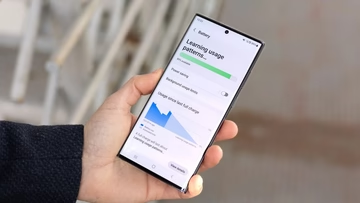
|
Getting your Trinity Audio player ready...
|
Overview of the IPSOS Survey on Pakistan’s Economic Outlook
In a recent survey conducted by IPSOS, a global survey firm based in Paris, inflation remains the number one concern for the people of Pakistan. Despite inflation easing to a six-year low, the survey found that 65% of respondents continue to express concerns about the country’s economic fragility. The survey, which was part of the Consumer Confidence Index, sheds light on the economic sentiment of Pakistani households in 2024, showing a low level of optimism about the future.
Inflation Continues to Dominate Public Concerns
According to IPSOS, inflation remains a major worry for Pakistanis, with 69% of respondents identifying it as their top concern. Although there has been a noticeable decrease in inflation-related anxiety, as it dropped by 16%, it still outranks other economic issues. Unemployment and increasing poverty also rank high on the list of concerns.
The Pakistan Bureau of Statistics (PBS) recently reported that inflation has decreased to 4.9%, the lowest rate in six years. This reduction in inflation was attributed to an inflated base of goods and a decrease in the prices of non-perishable goods. However, despite these improvements, inflation continues to weigh heavily on households, indicating persistent financial pressures.
Economic Optimism: A Complex Picture
Though inflation concerns are prevalent, the overall mood regarding Pakistan’s economic direction has shown some signs of optimism. The IPSOS survey indicated that 79% of respondents believe the country is heading in the wrong direction. However, there has been a slight shift in sentiment, as optimism about the future of Pakistan has nearly doubled in recent months, from 11% in the third quarter of 2024 to 19% in the October-December quarter.
This optimism marks the highest level in the past 36 months, though it remains significantly lower than the one-in-five optimism rate seen in March 2022. In particular, men were found to be more optimistic than women. Only 14% of female respondents felt the country was heading in the right direction, compared to 23% of men. This reflects a broader trend of gender-based differences in economic outlook, with females generally more pessimistic about Pakistan’s prospects.
Urban and Educated Respondents Show More Optimism
Among the different demographic groups, urban residents, individuals with higher education, and the middle class tended to be more optimistic about the country’s future. Approximately one-third of respondents viewed the country’s economic condition as either strong or moderate, with the outlook more favorable in urban centers. However, a significant portion—two-thirds—described the economic situation as weak, with a staggering 90% of female respondents and 86% of male respondents believing the economy has deteriorated.
The survey also revealed that individuals with higher education were particularly concerned, with 85% of post-graduate respondents perceiving the economy to be in weak condition. This demographic group is typically more attuned to the wider global economic trends and the implications of domestic policies, contributing to their more negative outlook.
Current Economic Conditions and External Sector Stability
Despite the prevailing pessimism, the IPSOS survey highlighted some positive developments, particularly in Pakistan’s external sector. The country has seen improvements in its export and remittance performance, and the current account deficit has remained low. These positive trends have contributed to a stable exchange rate, though Pakistan’s deputy prime minister recently commented that the rupee’s current value is artificially high and should ideally not exceed Rs240.
Nonetheless, the general economic sentiment among households remains fragile, with 93% of respondents expressing discomfort when it comes to making household purchases compared to the previous year. This indicates that even as some economic indicators show signs of improvement, the impact on daily life for many Pakistanis has been minimal.
Future Expectations: Low Confidence in Economic Recovery
Looking ahead, the survey revealed that Pakistanis remain deeply skeptical about the country’s economic future. Only one in four respondents expect improvement in the local economy over the next six months, with half of the respondents predicting no change. These figures reflect the general distrust among the public towards the government’s ability to steer the economy in a positive direction.
Pessimism about the financial situation also remains widespread, with only 20% of respondents expecting their financial conditions to improve over the next six months. This represents a slight decrease in pessimism compared to the previous quarter, where 67% of respondents were anticipating further economic deterioration.
Investment and Major Purchases: A Lack of Confidence
The IPSOS survey found that confidence in making investments in Pakistan remains extremely low. A staggering 86% of respondents expressed a lack of confidence in the investment climate, which has been hindered by political instability, economic volatility, and inconsistent government policies.
Similarly, when it comes to making major purchases, only 4% of respondents felt comfortable doing so. A dismal 96% of respondents expressed reluctance to spend on major items, reflecting widespread financial insecurity among the population.
Job Security and Economic Growth Prospects
Job security remains a significant concern for Pakistanis, with 85% of respondents expressing worry about their job stability. The lack of robust economic growth, particularly in the large-scale manufacturing sector, has compounded these fears. The country’s economic growth prospects continue to look bleak, with many industries struggling to regain momentum.
The Special Investment Facilitation Council (SIFC) has made efforts to attract foreign investment and boost local investor confidence. However, the political, economic, and security challenges facing Pakistan, combined with inconsistent policies, have hindered these efforts.
FAQs
1. Why is inflation still a top concern in Pakistan despite easing?
Inflation remains a significant issue for many Pakistanis due to its direct impact on the cost of living. Although it has decreased to 4.9%, prices of essential goods are still high, leading to ongoing financial pressures for households.
2. How has the general economic outlook changed in Pakistan in 2024?
While inflation concerns have eased somewhat, the general economic outlook remains fragile. Optimism has increased slightly in recent months, but the majority of Pakistanis still believe the country is heading in the wrong direction.
3. What factors contribute to the low confidence in Pakistan’s economy?
Political instability, economic volatility, and inconsistent government policies are key factors contributing to the low confidence. Additionally, concerns about job security and the lack of economic growth further erode trust in the country’s financial future.
4. What percentage of Pakistanis are optimistic about the country’s future?
According to the IPSOS survey, only 19% of respondents are optimistic about Pakistan’s future, which is the highest level of optimism seen in the past 36 months but still much lower than previous periods of optimism.
5. How do educational background and urban residency affect economic outlook?
Respondents with higher education and those living in urban areas are generally more optimistic about the economy. These groups tend to be more attuned to global economic trends and have more access to opportunities, contributing to their more positive outlook.
MUST READ:
https://skipper.pk/2024/12/07/gold-prices-fall-in-international-local-markets/






